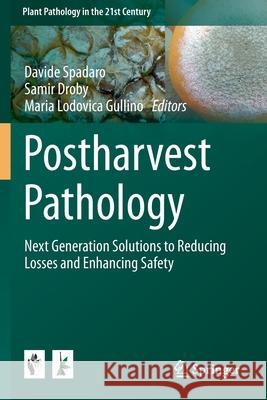Postharvest Pathology: Next Generation Solutions to Reducing Losses and Enhancing Safety » książka
topmenu
Postharvest Pathology: Next Generation Solutions to Reducing Losses and Enhancing Safety
ISBN-13: 9783030565329 / Angielski / Miękka / 2021 / 214 str.
Postharvest Pathology: Next Generation Solutions to Reducing Losses and Enhancing Safety
ISBN-13: 9783030565329 / Angielski / Miękka / 2021 / 214 str.
cena 647,09
(netto: 616,28 VAT: 5%)
Najniższa cena z 30 dni: 616,85
(netto: 616,28 VAT: 5%)
Najniższa cena z 30 dni: 616,85
Termin realizacji zamówienia:
ok. 16-18 dni roboczych.
ok. 16-18 dni roboczych.
Darmowa dostawa!
The book will address selected topics in postharvest pathology aiming at highlighting recent development in the science, technology and control strategies of postharvest diseases to reduce losses and enhance safety of harvested agricultural products. Topics will include: 1) Introduction: Perspectives and challenges in postharvest pathology 2) Elucidating host-pathogen interactions3) Next generation technologies for management and detection of postharvest pathogens4) Food safety in postharvest pathology5) Alternative postharvest diseases control strategies6) Chemical control of postharvest diseases











